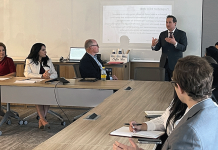Twenty-four California Chamber of Commerce-opposed bills, including one job killer bill, are currently on the Governor’s desk awaiting action. CalChamber job killer bill SB 1 (Atkins; D-San Diego) was vetoed by Governor Gavin Newsom on September 27.
Seventeen CalChamber-supported bills, including three job creator bills, also are awaiting action.
Governor Gavin Newsom has until Sunday, October 13 to take action on the following bills.
Job Killer Bill
The CalChamber is urging the Governor to veto AB 51 (Lorena Gonzalez; D-San Diego). The bill bans arbitration agreements made as a condition of employment.
Opposed Bills
The CalChamber is asking the Governor to veto the following bills:
- AB 9 (Reyes; D-Bernardino): Unnecessarily extends the statute of limitations from one year to three years for all discrimination, harassment and retaliation claims filed with the Department of Fair Employment and Housing.
- AB 35 (Kalra; D-San Jose): Requires a workplace investigation by Cal/OSHA, within three days, whenever the Department of Public Health records an employee’s blood lead level at 20 micrograms, a level well-below present regulatory standards.
- AB 171 (Lorena Gonzalez; D-San Diego): Places additional and duplicative, sexual harassment protections in the Labor Code, which are already protected under the Fair Employment and Housing Act (FEHA) exposing employers to additional liability including Private Attorneys General Act (PAGA) claims.
- AB 403 (Kalra; D-San Jose): Undermines the essence of the Division of Labor Standards Enforcement (DSLE) complaint process by requiring a one-sided attorney’s fee provision that will incentivize further litigation.
- AB 520 (Kalra; D-San Jose): Codifies a limited definition of the term “de minimis” to determine what level of public subsidy triggers prevailing wage requirements on an otherwise private project, overturning the established practice of viewing the subsidy in the context of the entire project.
- AB 589 (Lorena Gonzalez; D- San Diego): Creates new onerous requirements for employers to provide a worker bill of rights document to all employees, have them sign it, provide a copy of the signed document to the employee, keep the original for three years, and post the document. In addition, adds duplicative criminal penalties and civil penalties.
- AB 729 (Chu; D-San Jose): Replaces the current carpet stewardship 35-cent assessment per cubic yard of carpet with a complicated, difficult to calculate and potentially costly differential assessment.
- AB 731 (Kalra; D-San Jose): Increases administrative costs and imposes a burdensome rate and methodologies review process for health plans and insurers in the large group market.
- AB 744 (Aguiar-Curry; D-Winters): Eliminates the cost savings benefit of telehealth and requires telehealth services to be reimbursed on the same basis and to the same extent as in-person medical services.
- AB 749 (Mark Stone; D-Scotts Valley): Unnecessarily bans the use of no re-hire provisions in settlement agreements for all employees, including those who have engaged in unlawful or egregious behavior.
- AB 1130 (Levine; San Rafael): Expands the California Consumer Privacy Act’s (CCPA) private right of action, which requires no proof of injury.
- AB 1451 (Low; D-Campbell): Prohibits compensation for collecting signatures for state or local initiatives, referendums or recall petitions on a per signature basis.
- AB 1478 (Carrillo; D-Los Angeles): Expands job-protected leave.
- AB 1677 (Weber; D-San Diego): Improperly seeks to penalize California companies who move their call centers out of the country.
- AB 1783 (Robert Rivas; D-Hollister): Imposes a more rigorous process on the development of farmworker housing than all other types of affordable housing development by restricting the location of such housing and who can manage the housing.
- SB 142 (Wiener; D-San Francisco): Significantly amends current law regarding lactation accommodations.
- SB 163 (Portantino; D-La Cañada Flintridge): Increases costs and undermines the ability of health care issuers to promote and manage applied behavioral analysis for children with autism by making a number of changes to how the autism services are provided.
- SB 218 (Bradford; D-Gardena):Creates uncertainty, inconsistency, and confusion with regard to the application and interpretation of the Fair Employment and Housing Act by allowing Los Angeles County to create a local agency with enforcement authority.
- SB 227 (Leyva; D-Chino):Increases health care costs by imposing arbitrary and significant additional fines specifically for hospital violations of nurse-to-patient staffing ratios and staffing assignments that are already reviewed by the Department of Public Health and penalized if violated.
- SB 329 (Mitchell; D-Los Angeles):Imposes additional and unnecessary costs on rental property owners by prohibiting rental property owners from refusing to accept tenants because they have a Section 8 voucher.
- SB 468 (Jackson; D-Santa Barbara): Creates unnecessary commission to study tax expenditures that will cause uncertainty for business.
- SB 600 (Portantino; D-La Cañada Flintridge):Increases health care premiums by mandating coverage for fertility preservation services due to infertility caused by necessary medical treatment.
- SB 707 (Wieckowski; D-Fremont): Discourages the use of arbitration by subjecting employers to significant monetary, evidentiary, and criminal sanctions if the company fails to pay any cost or fee associated with arbitration, even if there is a valid fee dispute.
Job Creator Bills
The CalChamber is urging the Governor to sign the following bills:
- AB 23 (Burke; D-Inglewood)Establishes the Business Workforce Coordination Unit, which will help provide California with a workforce that is employment-ready and trained in industry sectors that have the greatest workforce needs.
- AB 1195 (O’Donnell; D-Long Beach) Allows credit under the Low Carbon Fuel Standard to innovative crude technologies, including carbon capture and sequestration, energy storage, and renewable natural gas or biogas.
- SB 601 (Morrell; R-Rancho Cucamonga): Allows state agencies that issue business licenses to establish a procedure to reduce licensing fees for businesses affected by emergencies to help California businesses rebuild after disasters.
Supported Bills
The CalChamber is urging the Governor to sign the following bills:
- AB 25 (Chau; D-Monterey Park): Largely exempts employee, job applicant, and contractor data from the California Consumer Privacy Act (CCPA), which is a necessary fix to prevent huge, additional compliance costs for businesses for something never intended by this law designed for “consumers” and is necessary to prevent negative, unintended consequences.
- AB 203 (Salas; D-Bakersfield): Seeks to address a regional safety concern regarding Valley Fever by requiring a targeted training program for employees in industries and occupations that are most at risk.
- AB 417 (Arambula; D-Fresno): Helps agriculture and rural economies target investments, attract and retain businesses, and gather information on various local assets that will lead to improved economic conditions.
- AB 430 (Gallagher; R-Nicolaus): Establishes a streamlined, ministerial approval process for certain housing developments that will be constructed in specified counties if certain criteria are met.
- AB 733 (Quirk; D-Hayward): Provides the California Department of Toxic Substances Control with authority to evaluate whether alternative tests can be used to identify whether substances are hazardous waste or extremely hazardous waste, which is a positive first step toward reducing the number of products that are treated as hazardous waste when disposed of at retail.
- AB 874 (Irwin; D-Thousand Oaks): Adds reasonableness standard to the CCPA’s definition of personal information to avoid requiring businesses to compile consumer data in a way that would be hugely wasteful and harmful to consumer privacy. It also eliminates an unconstitutional limitation on business dissemination of publicly available government records from the definition of personal information.
- AB 885 (Irwin; D-Thousand Oaks): Provides greatly needed assistance to victims of natural disasters who choose to reconstruct destroyed homes and business structures on the original site of the disaster, by exempting this reconstruction from being assessed at a higher tax rate.
- AB 1083 (Burke; D-Inglewood): Increases transparency and guides development of energy policy by having the California Council on Science and Technology review and provide analysis on pending legislation, thereby disclosing impacts to ratepayers.
- AB 1146 (Berman; D-Palo Alto): Reasonable fix to the CCPA to ensure consumers exercising their rights to sale and deletion of data under do not find themselves unable to receive information regarding necessary vehicle repairs relating to warranty work or a safety recall.
- AB 1240 (Weber; D-San Diego): Encourages schools to prioritize both career and college preparation for students, which will help reduce dropout rates, increase graduation rates, and better prepare students for the workforce.
- AB 1355 (Chau; D-Monterey Park): In addition to a number of technical fixes, ensures that communications between businesses providing services or products to each other as well as the memorialization of such transactions will be largely exempt from the CCPA.
- AB 1564 (Berman; D-Palo Alto): For businesses that operate only online, this bill removes the CCPA requirement to provide a 1-800 number for consumers to exercise their CCPA rights, which is burdensome and in many circumstances is not a safe way to verify a consumer’s identity.
- SB 13 (Wieckowski; D-Fremont): Encourages more affordable housing by limiting what development impact fees typically charged for new Accessory Dwelling Units (ADU) can be levied and precludes local jurisdictions from adopting overly restrictive local provisions, such as owner-occupant requirements.
- SB 330 (Skinner; D-Berkeley): Incentivizes more housing development by providing fee certainty for housing development projects by prohibiting local jurisdictions from changing fees midway through the development permitting process.


